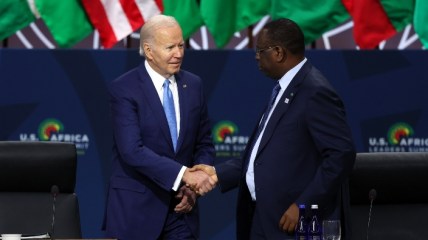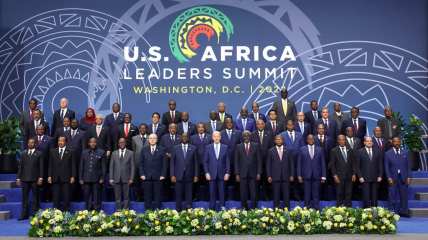Vice President Kamala Harris’ trip will strengthen U.S.-Africa ties
OPINION: Improving U.S. relations with the 54 nations in Africa is in our country’s economic and security self-interest.
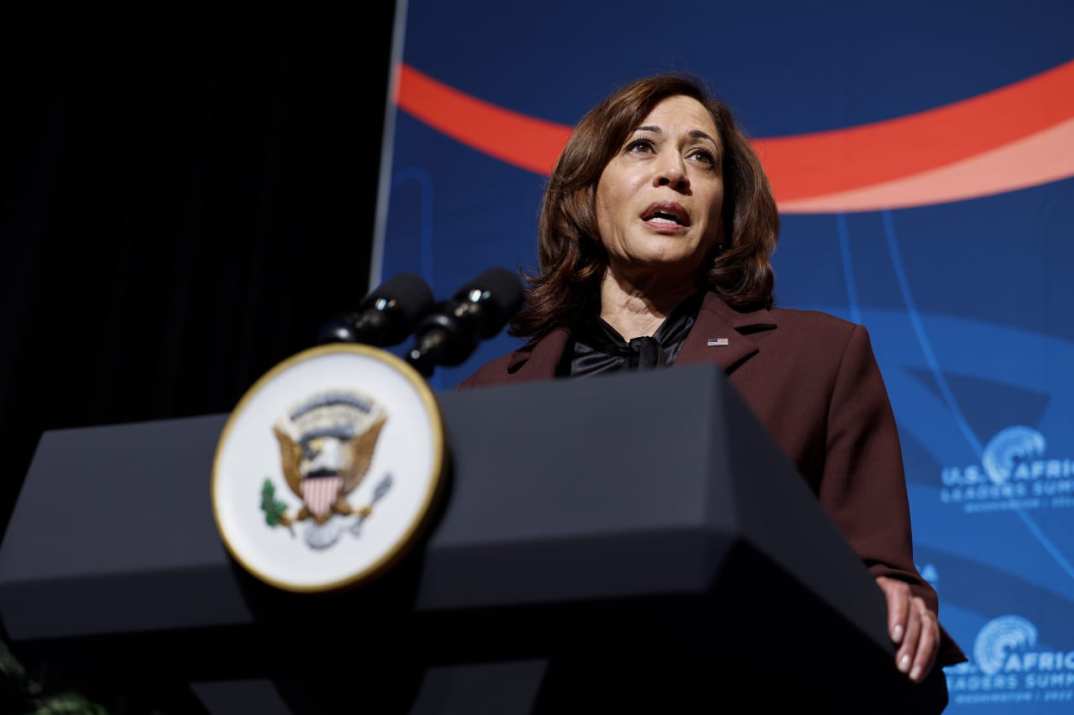
Editor’s note: The following article is an op-ed, and the views expressed are the author’s own. Read more opinions on theGrio.
Vice President Kamala Harris’s trip to three African nations from beginning this weekend to April 2 marks an important step to building stronger U.S. ties with a continent that has seldom received the positive attention it deserves.
The trip is the latest in a long line of important assignments President Joe Biden has given to the vice president internationally and domestically. Harris has met with over 100 world leaders and is helping improve relationships with nations that worsened under the chaotic and impulsive foreign policy agenda pursued by former President Donald Trump.
The vice president’s visit is yet another sign of the Biden-Harris administration’s wise commitment to strengthening relations with African nations. Secretary of State Antony Blinken has visited nations in sub-Saharan Africa three times and first lady Jill Biden and Treasury Secretary Janet Yellen have also visited the continent.
Harris will meet with Presidents Nana Akufo-Addo of Ghana, Samia Hassan of Tanzania and Hakainde Hichilema of Zambia to build on the progress made at the U.S.-Africa Leaders Summit hosted by Biden and the vice president in December. Harris and the three African presidents will discuss African development issues, bilateral relations, Russia’s war against Ukraine and other issues. Harris will also meet with young leaders, business people and others outside of government.
At the U.S.-Africa Leaders Summit, Biden and Harris announced plans to work with Congress to invest at least $55 billion in Africa over three years on a broad range of initiatives. These include actions to increase trade and investment in the continent, accelerate the growth of African economies, improve health care, build renewable energy projects, expand internet access and literacy, increase the food supply, strengthen democratic institutions and improve security.
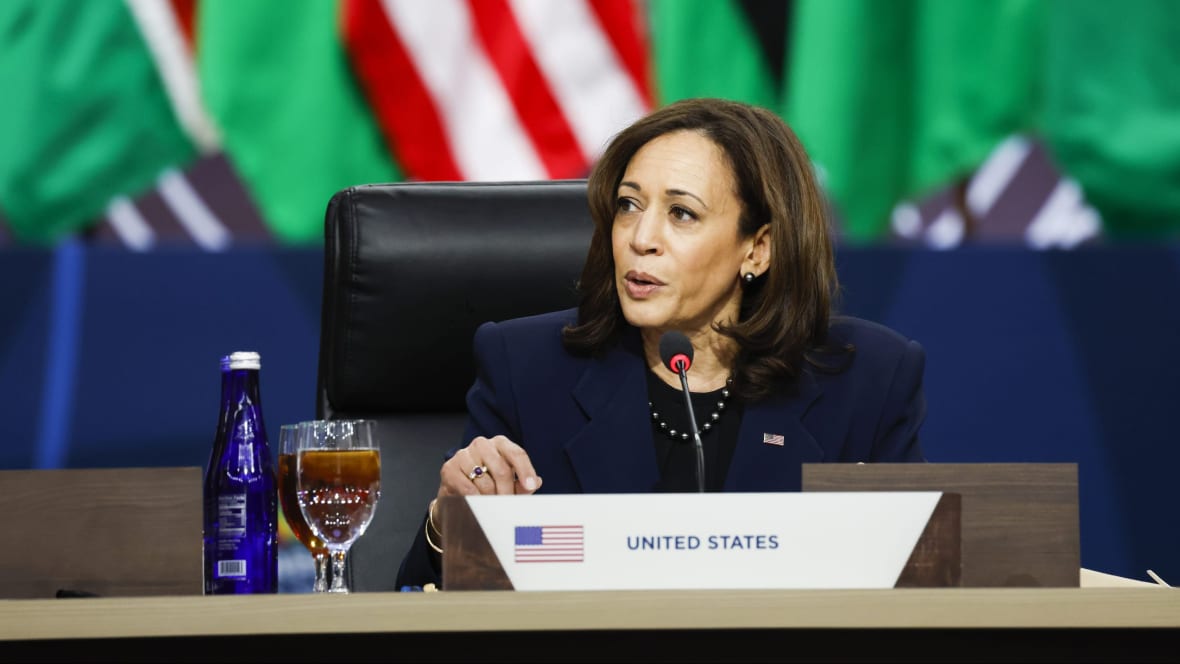
The trip also has personal significance for Harris as our first vice president of African and South Asian descent. Her maternal grandfather, who was a civil servant in India, worked in Zambia for several years, and Harris visited him there when she was a young girl of about 5.
Improving U.S. relations with the 54 nations in Africa is in our country’s economic and security self-interest. One reason for this is that Africa has a population of about 1.46 billion people — more than four times larger than the United States, over twice as large as South America and almost twice as large as Europe. The only continent with more people is Asia. Africa is also the second-largest continent geographically after Asia, covering 11.6 million square miles.
In addition, Africa is rich in natural resources. According to United Nations estimates, the continent holds 12% of the world’s oil reserves, 8% of the world’s natural gas, 40% of the world’s gold and up to 90% of the chromium and platinum on the planet. Africa also holds the world’s largest reserve of cobalt, diamonds and uranium.
Yet despite these impressive facts, racism directed against Black people has long prompted people outside Africa to look down on the continent and its people as backward and inferior.
While he was president, Donald Trump perpetuated old stereotypes about the continent, according to reports from several news organizations. Trump said African immigrants entering the U.S. would never “go back to their huts,” The New York Times reported in 2017, quoting two sources it did not name.
And the Washington Post and other news organizations reported that in a 2018 meeting with Democratic and Republican senators on immigration, sources said Trump referred to African nations, Haiti (with a 95 percent-Black population) and El Salvador as “shithole countries” and asked: “Why are we having all these people from shithole countries come here?” Instead, Trump reportedly said America should increase immigration from nations such as Norway, which is over 90 percent white and has a Black population of less than 1 percent.
Trump later denied making the remarks, but Sen. Dick Durbin, D-Ill., who was at the meeting, said Trump uttered the words. Durbin called the comments “hate-filled, vile and racist.”
The world has not treated Africa well. For hundreds of years, the continent was robbed of people and natural resources, and colonized by European nations that carved it up into territories they controlled. Enslavers and colonizers justified their actions by classifying Black people as ignorant savages not entitled to human rights, who needed to be converted to Christianity and “civilized.”
An estimated 12.5 million Africans were captured between about 1526 and 1867 to be enslaved in the Americas, but about 12 percent died under horrific conditions on slave ships crossing the Atlantic. The vast majority of the captives were taken to South America and the Caribbean, with only about 450,000 arriving in colonial America and later the United States.
Britain, France, the Netherlands, Germany, Italy, Belgium, Portugal and Spain all established colonies in Africa, stealing land that belonged to Africans and making Africans second-class citizens in their own homelands. Thankfully, the days of colonialism have ended.
Africa continues to receive less attention today than it deserves. Much more news coverage in the American media goes to Europe, Asia and Latin America, and many Americans have wildly inaccurate misconceptions about the continent.
Biden and Harris understand Africa’s importance, as evidenced by the upcoming visit by the vice president and previous visits by the first lady and secretary of state.
I expect we’ll be hearing more progress on U.S.-Africa relations in the near future and look forward to closer ties with the ancestral home I share with other Black Americans.
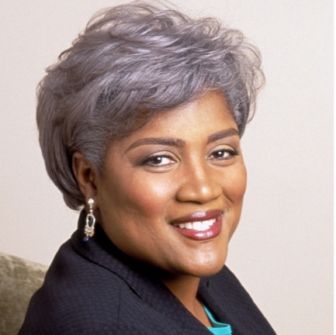
Donna Brazile is an ABC News Contributor, veteran political strategist, an adjunct professor at Georgetown University, and the King Endowed Chair in Public Policy at Howard University. She previously served as interim Chair of the Democratic National Committee (DNC) and of the DNC’s Voting Rights Institute. She managed the Gore campaign in 2000 and has lectured at more than 225 colleges and universities on race, diversity, women, leadership and restoring civility in politics. Brazile is the author of several books, including the New York Times’ bestseller “Hacks: The Inside Story of the Break-ins and Breakdowns That Put Donald Trump in the White House.” @DonnaBrazile
TheGrio is FREE on your TV via Apple TV, Amazon Fire, Roku, and Android TV. Please download theGrio mobile apps today!
